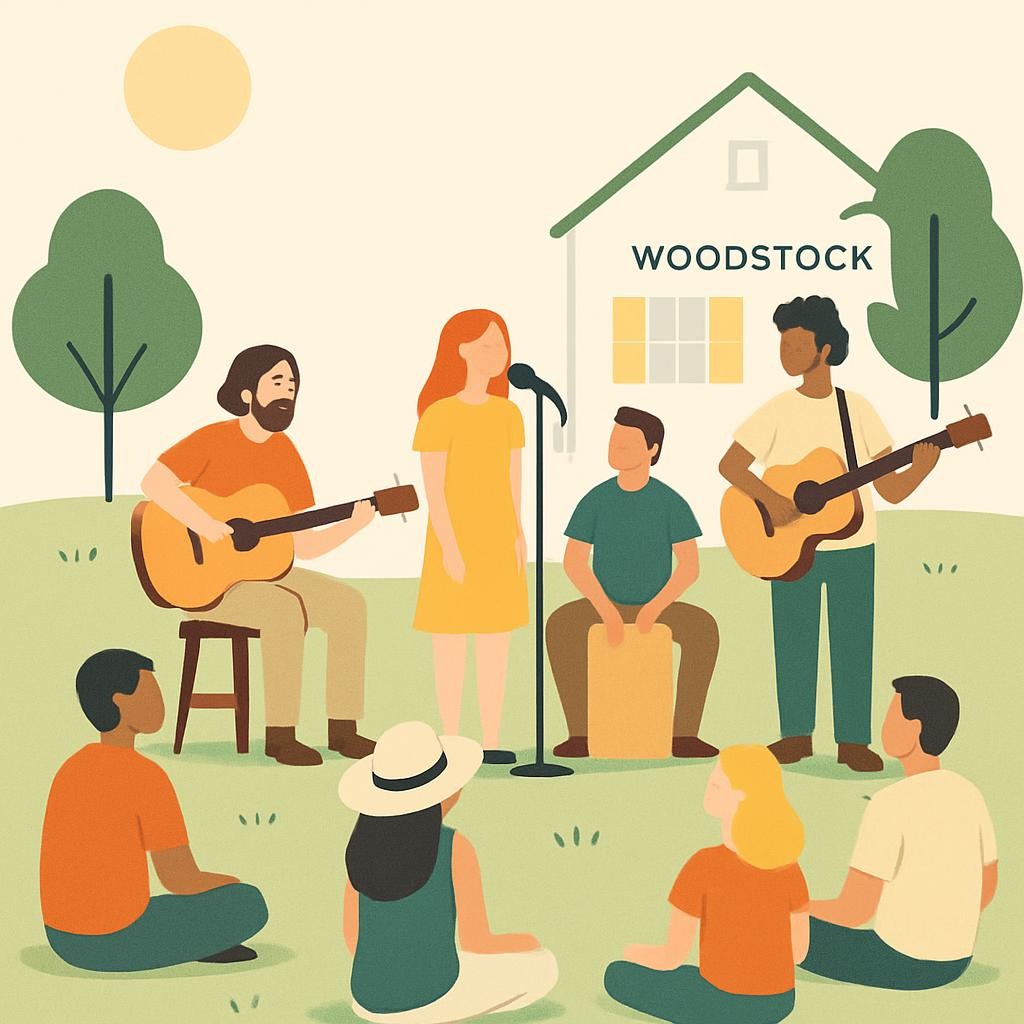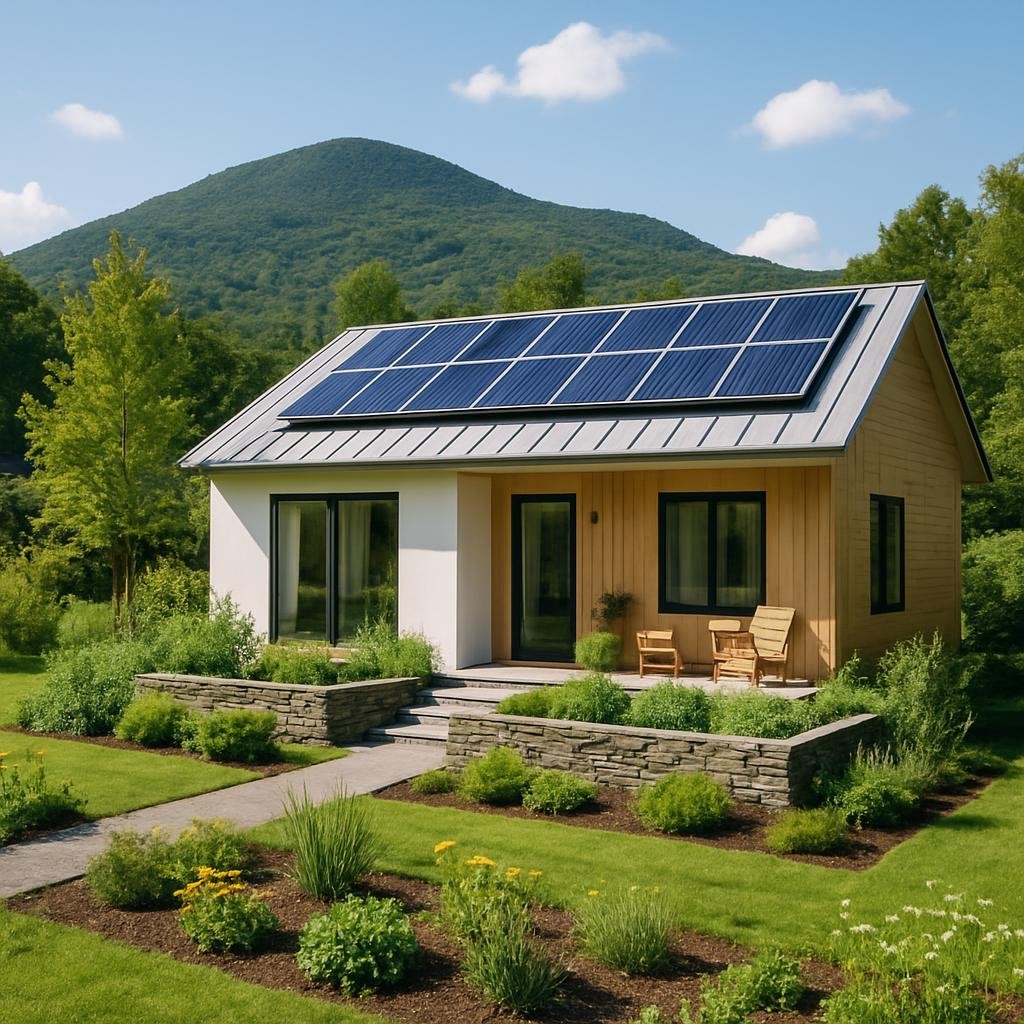How to Build Sustainable Music Tourism Success: 6 Proven Strategies for Woodstock Rental Owners

The Woodstock music tourism market represents one of the most unique opportunities in vacation rental investment, combining cultural heritage with sustainable hospitality practices. As the birthplace of the legendary 1969 festival, Woodstock continues to attract music tourists and cultural enthusiasts from around the world, creating year-round demand for authentic accommodations.
Recent market analysis shows the Hudson Valley region, including Woodstock, experiencing significant rental price increases as demand for second homes and vacation rentals grows. However, successful music tourism properties require more than just prime location—they need strategic community integration, sustainable practices, and authentic cultural programming.
Building long-term success in this market means understanding that today's travelers seek meaningful experiences that connect them with local heritage and creative communities. Properties that embrace Woodstock's artistic legacy while supporting the local ecosystem not only achieve higher occupancy rates but also contribute to the area's cultural sustainability.
This comprehensive guide reveals six proven strategies for developing sustainable music tourism rentals that benefit both property owners and the Woodstock community, ensuring your investment thrives for years to come.
Understanding Woodstock's Music Heritage Market Potential
Woodstock's position as a global music destination extends far beyond the famous 1969 festival, encompassing a rich ecosystem of year-round cultural attractions and events. The presence of established institutions like the Woodstock Museum and Bethel Woods creates consistent visitor flow, while the town's ongoing artistic community ensures authentic cultural experiences for tourists.
Market dynamics in the Catskills reveal significant opportunities for heritage tourism property investment. While the historic Borscht Belt resorts have largely declined, this creates openings for smaller-scale, culturally focused accommodations that cater to music tourists seeking authentic experiences. Properties that successfully blend vintage charm with modern amenities are commanding premium rates, as evidenced by recent listings showcasing live/work spaces designed for creative professionals.
The target demographic for Woodstock music tourism includes multi-generational travelers, music festival attendees, creative professionals seeking inspiration, and cultural heritage tourists. These visitors typically stay longer than traditional vacationers and are willing to pay premium rates for properties that offer genuine connections to the area's musical legacy.
Revenue potential increases significantly when properties integrate local cultural programming. Research shows that vacation rentals offering immersive experiences such as workshops and performances achieve higher booking rates and guest satisfaction scores. Properties positioned as cultural hubs rather than simple accommodations tap into the growing demand for experiential travel, positioning owners for sustainable long-term success in this unique market segment.
Developing Authentic Community Partnerships for Long-Term Success

Building sustainable partnerships with Woodstock's creative community forms the foundation of successful music tourism rentals. Property owners who invest time in developing relationships with local artists, musicians, and cultural organizations create authentic experiences that differentiate their offerings from standard accommodations.
Effective partnership strategies begin with joining local arts organizations and attending community meetings to understand the needs and concerns of residents. Successful property owners often collaborate with local artists to offer guests workshops, private performances, or studio visits, creating unique selling propositions that command premium rates while supporting the local economy.
Revenue-sharing models benefit both property owners and community partners. Consider offering artists commission-based arrangements for guest experiences, providing studio spaces in exchange for programming, or creating artist residency programs that attract culturally motivated travelers. These partnerships often lead to positive word-of-mouth marketing and repeat bookings from guests seeking deeper cultural connections.
Community integration practices should prioritize respect for local culture and residents' quality of life. Establish clear communication channels with neighbors, participate in local events, and ensure your guests understand and appreciate Woodstock's artistic heritage. Properties that demonstrate genuine commitment to community well-being often receive support from local tourism boards and arts councils.
Long-term success depends on viewing your property as part of Woodstock's cultural ecosystem rather than an isolated business venture. Owners who consistently support local initiatives, employ community members, and reinvest profits locally build strong reputations that translate into sustained bookings and community advocacy for their operations.
Creating Immersive Cultural Experiences That Drive Bookings
Experiential programming distinguishes successful music tourism rentals from generic accommodations by offering guests authentic connections to Woodstock's creative heritage. Properties that integrate culturally themed experiences within their offerings achieve significantly higher booking rates and guest satisfaction scores than those relying solely on location.
Signature experience development should reflect your property's unique character while honoring local traditions. Consider offering recording studio sessions in converted spaces, songwriting workshops with local musicians, or guided tours of historic music venues. Properties featuring art workshops, culinary classes, or traditional music events create memorable experiences that justify premium pricing and encourage extended stays.
Technology integration enhances cultural programming without compromising authenticity. Digital storytelling platforms can provide guests with historical context about your property and the surrounding area, while booking systems allow seamless scheduling of experiences. Consider creating QR code tours that connect guests with local music history or virtual reality experiences showcasing the 1969 festival.
Seasonal programming strategies maintain year-round appeal by aligning experiences with Woodstock's cultural calendar. Summer programs might focus on outdoor concerts and festival preparation, while winter offerings could emphasize intimate acoustic sessions and creative retreats. Understanding the rhythm of local artistic activities allows property owners to create complementary programming that attracts different market segments throughout the year.
Guest engagement metrics should track not just occupancy rates but also experience participation and satisfaction levels. Properties that consistently deliver high-quality cultural programming often see increased direct bookings, positive reviews mentioning specific experiences, and guests who return annually to participate in seasonal offerings, creating a sustainable foundation for long-term business growth.
Implementing Sustainable Tourism Practices for Community Support

Environmental sustainability in Woodstock music tourism rentals requires balancing guest comfort with ecological responsibility and community values. Properties that implement green building features, shared gardens, and environmental education not only reduce operational costs but also attract environmentally conscious travelers willing to pay premium rates for responsible accommodations.
Sustainable operational practices include partnering with local organic farms for guest amenities, implementing comprehensive recycling programs, and using renewable energy sources where possible. Research shows that biodiesel transportation and eco-friendly venue partnerships appeal strongly to music tourists who value environmental responsibility alongside cultural authenticity.
Community economic sustainability involves prioritizing local suppliers, hiring community members, and ensuring tourism benefits are shared equitably among residents. Successful properties often establish purchasing agreements with local artisans, food producers, and service providers, creating economic multiplier effects that strengthen the entire community.
Cultural preservation initiatives protect Woodstock's artistic heritage while accommodating tourism growth. This includes supporting traditional music preservation projects, funding community arts education, and ensuring that tourism development doesn't displace long-term residents or artists. Properties that actively contribute to cultural preservation efforts often receive community support and positive media coverage.
Measurement and accountability systems track both environmental and social impacts of your tourism operations. Implementing guest education programs about local ecosystems and cultural history, monitoring resource consumption, and regularly assessing community relationships ensures your property contributes positively to Woodstock's long-term sustainability goals while maintaining profitable operations that benefit all stakeholders.
Building Artist and Fan Relationships Through Strategic Programming
Artist partnership programs create mutually beneficial relationships that enhance property appeal while supporting Woodstock's creative community. Successful rental owners often establish artist residency opportunities that provide musicians with affordable accommodation in exchange for guest performances or workshops, creating unique selling propositions that attract music-focused travelers.
Fan engagement strategies leverage the deep emotional connections people have with music and Woodstock's legendary status. Properties that offer exclusive access to local recording studios, meet-and-greet opportunities with touring musicians, or behind-the-scenes experiences at historic venues create memorable moments that justify premium pricing and generate powerful word-of-mouth marketing.
Cross-promotional opportunities with music festivals, venues, and record labels expand your marketing reach while providing guests with enhanced experiences. Consider developing partnerships that offer priority festival tickets, backstage passes, or exclusive acoustic sessions for your guests. These collaborations often result in increased bookings during major music events and throughout the year.
Digital community building extends relationships beyond physical stays through social media platforms, email newsletters, and virtual events. Properties that maintain active online communities of past guests, local musicians, and music enthusiasts create year-round engagement that drives repeat bookings and referrals.
Long-term relationship cultivation involves tracking guest preferences, celebrating return visitors, and creating loyalty programs that reward frequent stays. Successful properties often develop deeper host-guest relationships that lead to spontaneous cultural interactions and meaningful connections between visitors and the local music community, fostering lasting bonds that benefit both tourism and artistic development.
Maximizing Investment Returns with Heritage Property Development
Heritage property investment in Woodstock requires understanding both cultural significance and modern market demands. Properties with authentic historical connections to the area's music legacy command premium rates when properly renovated to blend vintage character with contemporary amenities that today's travelers expect.
Adaptive reuse strategies transform underutilized buildings into unique accommodations that honor their historical purpose while meeting modern hospitality standards. Former artist studios, recording spaces, or music venues can be converted into distinctive rental properties that offer guests authentic connections to Woodstock's creative heritage while generating substantial returns on investment.
Market positioning tactics emphasize your property's unique story and cultural authenticity rather than competing solely on price. Properties that successfully market their historic significance and artistic connections often achieve occupancy rates 20-30% higher than generic accommodations, with guests willing to pay premium rates for authentic cultural experiences.
Financial optimization involves leveraging historic preservation tax credits, cultural tourism grants, and heritage designation programs that can significantly reduce renovation costs and ongoing expenses. Many successful Woodstock property owners utilize public-private partnerships to access funding for cultural tourism development projects.
Long-term value creation extends beyond immediate rental income to include property appreciation, brand development, and portfolio expansion opportunities. Heritage properties that establish strong reputations often become anchor investments that support additional acquisitions and development projects, creating scalable business models that benefit from Woodstock's continued growth as a premier music tourism destination while contributing meaningfully to the community's cultural and economic vitality.
Conclusion
Building sustainable success in Woodstock's music tourism rental market requires more than just capitalizing on the area's legendary reputation—it demands genuine commitment to community integration, environmental responsibility, and cultural authenticity. The six strategies outlined in this guide provide a comprehensive framework for developing properties that not only generate strong returns but also contribute positively to Woodstock's artistic ecosystem.
Successful implementation begins with understanding your role as both a business owner and community steward. Properties that prioritize authentic partnerships, immersive cultural programming, and sustainable practices consistently outperform generic accommodations while building lasting relationships with guests and residents alike.
The future of music tourism in Woodstock depends on property owners who view their investments as contributions to the area's cultural legacy. By following these proven strategies, you'll position your rental for long-term profitability while supporting the creative community that makes Woodstock a truly unique destination.
Start implementing these approaches today to build the foundation for sustainable success in this extraordinary market.
